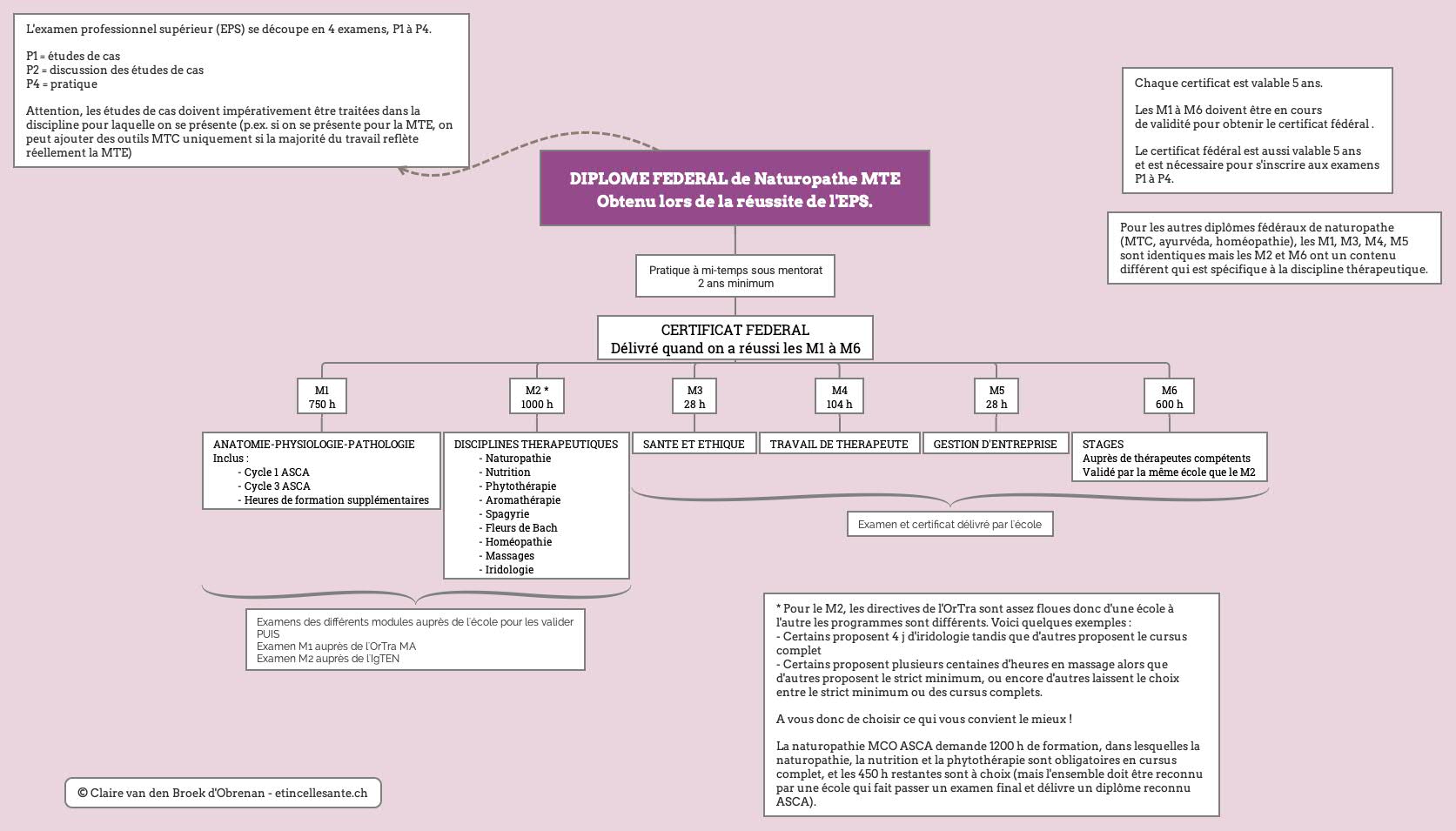As naturopathy is more or less recognized in different countries and contexts, it’s important to set the record straight.
In Switzerland, the profession is recognized, and benefits are covered by supplementary insurance schemes according to certain criteria. Professional associations bring together therapists who meet their specifications, and collaborate with a number of insurance companies.
At present, legislation governing naturopaths varies from canton to canton. The
ASCA website brings this information together nicely and clearly. In the canton of Vaud, for example, anyone can work as a naturopath; only qualified naturopaths can be reimbursed by supplementary insurance. In the canton of Berne, the situation is quite the opposite: naturopaths need a right to practice granted by the cantonal doctor, and this right is subject to the requirement of a federal certificate or diploma (DF).
Obtaining the federal diploma
But how do you get it? For those who have already studied in the field, some schools offer bridging programs or validate acquired skills. For others, you’ll need to start your studies from the beginning, preferably with a clear understanding of the context from the outset.
The diagram below summarizes the various modules to be performed (or validated), with the comments I thought relevant.
Basically, you start by taking courses in different disciplines, grouped into modules M1 (academic medicine), M2 (naturopathy MTE, TCM, ayurveda or homeopathy), M3 (health and ethics), M4 (working as a therapist), M5 (business management) and M6 (internships).
Once you’ve taken the courses and passed the exams at one of the schools, you’ll receive the certificates you need to register for the official M1 and M2 exams (which can be taken at the same time or separately). At the same time, accredited schools issue certificates directly for modules M3, M4 and M5 (phew, at least something you don’t have to do in 50 steps!). Finally, the M6 is supervised and validated by the same school that validates the M2 (since not all schools offer the same program, there has to be a minimum of consistency).
Well no, not finally, because it’s not over yet! Together, these M1-M6 diplomas lead to the federal certificate, which is the intermediate stage. You can be recognized by all the professional associations, you can obtain a right to practice… but you still have to complete two years of part-time mentored practice (M7) before taking the final exam and obtaining the long-awaited DF (phew)!


